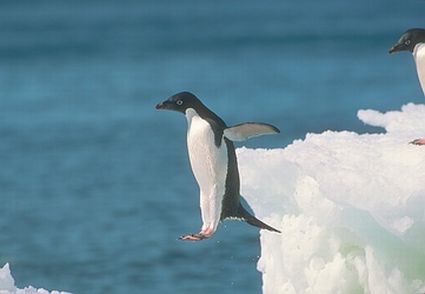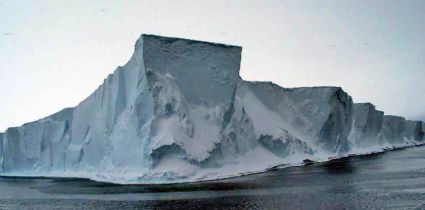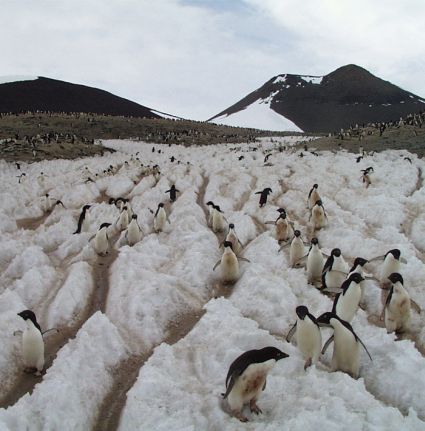
Can you guesstimate how old antarctic ice sheets are? Well, Steven D. Emslie has. The North Carolina university professor uses a particular species of penguins and radio carbon dating methods to determine the age of the Antarctic ice sheets. The prof. estimates that Ross Ice shelf advanced northwards about 13,000 years ago and it started to retreat end of the ice age.
The Adelie penguins tend to return to the same spot every year leaving a mountain of debris behind. This kind of debris is a treasure for researchers involved in Antarctic ice sheet studies.
These penguins are the smallest in Antarctica. Being small, they tend to nest in ice free zones of the shelf. The small creatures colonize debris all over the glacier. These colonies of penguins mark the advancing or retreating ice shelf. Thus, the Adelie penguins are immense help to the study.

Until now, there was no way to measure the ‘shifting interface between ice and water’. This is what Prof.Emslie has been working on. The professor has managed to publish couple of articles on this study as of now. I think this is a great study and just the fact that penguins are providing all the clues is very unique.
The first article titled ‘A 45,000 year record of Adelie penguins and climate change in the Ross Sea, Antarctica‘ has been published on the Ross Ice shelf. This one studies the movements of the Ice shelf(advance and retreat). The shelf is a part of the massive glacier system. This movement can be studied by examining how the penguins behave.

The second one was published on July 10th in Geology. This article is mainly on the dietary conditions of the penguins. The professor mentions that the penguins are feeding off krill because the climate change has also changed the penguin’s food habits. According to the paper, the former diet of penguins was mainly fish oriented. However, with the climate of the Southern ocean changing, there’s not much of fish left to devour.
The North Carolina professor’s research was funded by the National Science Foundation, NASA and also National Geographic.Hopefully, there will be more studies like this in near future on global climate change and it’s influence.

